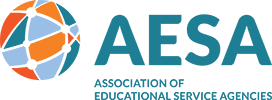November 26, 2025
Written by Tara Thomas, AESA Senior Government Affairs Manager
Last week, the Department of Homeland Security (DHS) proposed reissuing a regulation that could penalize noncitizens who use Medicaid and other income-based public benefit programs.
Under the “public charge rule,” immigration officials can deny applications for permanent residency or visa extensions if it is determined they are likely to become a “public charge,” meaning that the individual has received or could expect to receive certain other benefits.
The new rule would rescind the 2022 regulations and broaden the scope of benefits that could be included in the determination of whether an immigrant is expected to become a public charge. The text states that rescinding the 2022 regulations “would restore broader discretion to evaluate all pertinent facts and align with long-standing policy that aliens in the United States should be self-reliant and government benefits should not incentivize immigration.” The new rule would allow immigration officials significant leeway in deciding what could be included and excluded, which has led to concerns that the decision could hinge on consideration of Supplemental Nutrition Assistance Program (SNAP) benefits, other nutrition programs, and some Medicaid benefits, as the regulations do not expressly exclude those programs like the 2019 version did.
The policy will likely discourage families from signing up for programs they may need in order to avoid putting their immigration status at risk. Anecdotal data from the last time the rule was in place, along with later studies, suggest that immigrant families avoided using health services. The administration estimates the government would save nearly $9 billion annually in health costs because “aliens as well as U.S. citizens who are members of mixed-status households” would voluntarily leave Medicaid. Lower enrollment in these programs not only impacts students’ access to critical resources, but also impacts district operations by decreasing direct certification and access to the School-Based Medicaid services.
The rule has been issued for public comment by DHS here; comments are due December 19th. To comment, navigate to the page and click on the green "SUBMIT A PUBLIC COMMENT" button near the header.
